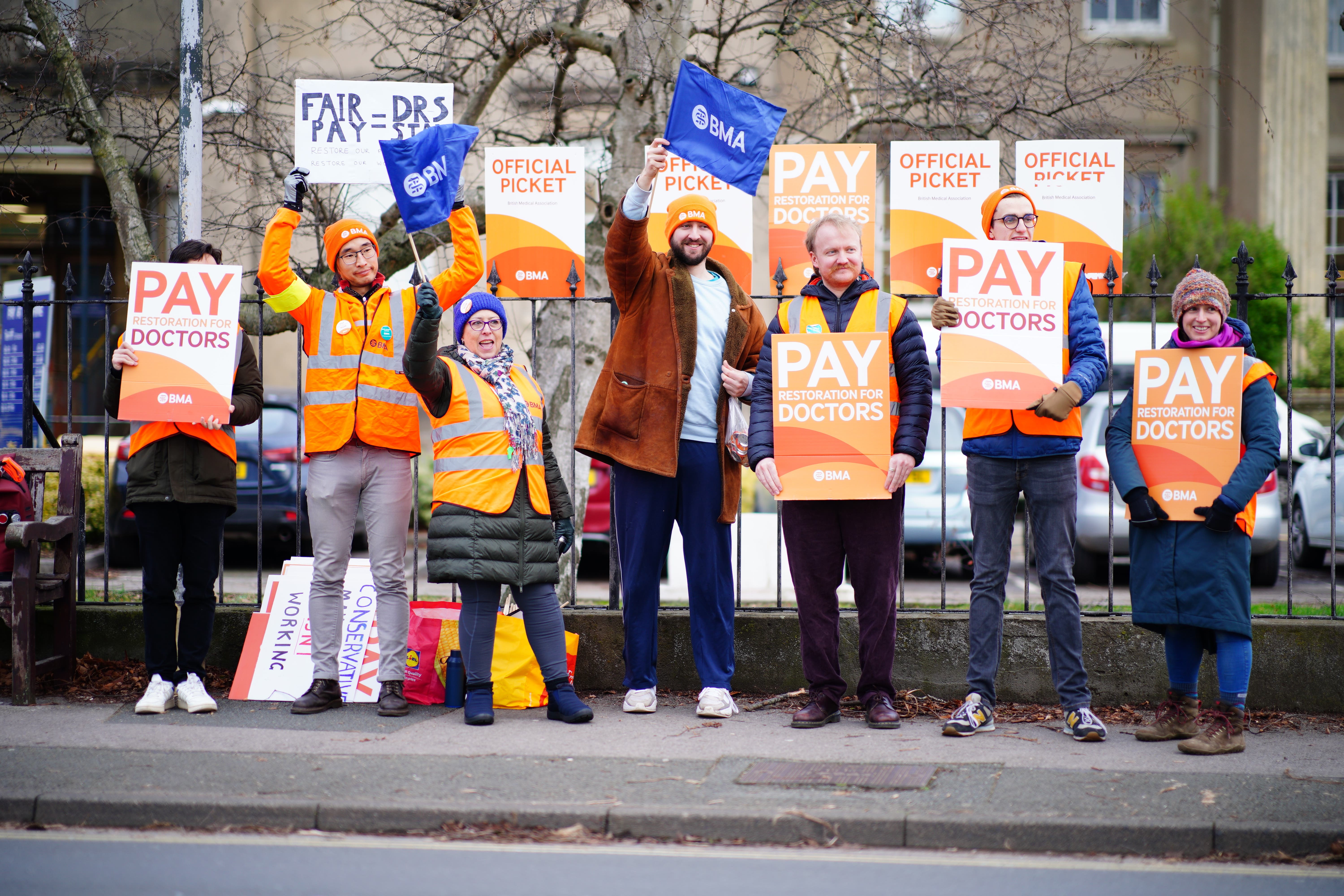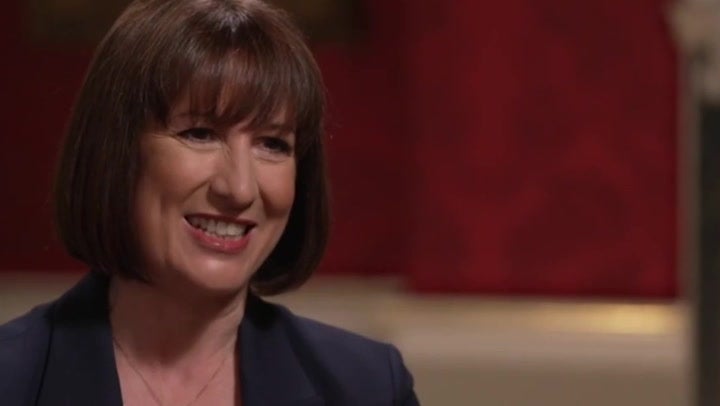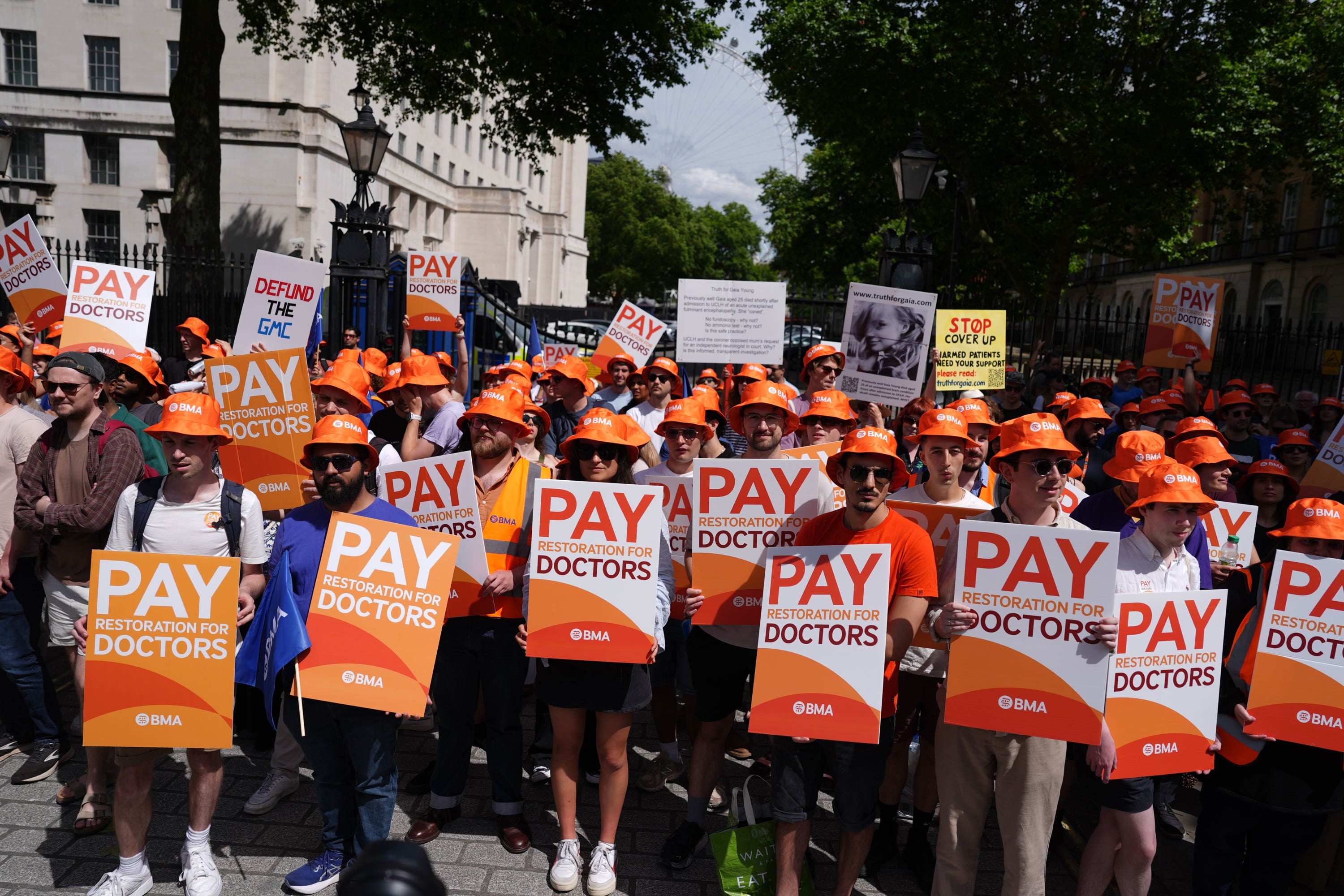New junior doctors are not paid enough say 50% of Labour voters, poll suggests
Chancellor Rachel Reeve has hinted public sector workers would receive above-inflation pay rises

Half of Labour voters do not think newly qualified junior doctors or new nurses are paid enough, a new poll has suggested.
Researchers from King’s College London also found more than 50 per cent of people do not believe nurses are well paid, while 61 per cent believe hospital chiefs are paid too much.
Senior doctors, such as hospital consultants, were most commonly seen as being paid the right amount, according to a poll carried out by Ipsos on behalf of academics.
The news comes as the government enters into talks with the British Medical Association over junior doctors’ pay in a bid to agree a new deal and end strikes.
On Sunday, chancellor Rachel Reeves hinted public sector workers would receive above-inflation pay rises, after reports that independent pay review bodies have recommended a 5.5 per cent increase for teachers and NHS staff.
Dr Nick Krachler, senior lecturer in human resource management at King’s Business School, said: "Our survey shows considerable alignment between public perceptions of NHS pay levels and the claims of trade unions and professional associations that pay levels – which are determined by government after consultation from a Pay Review Body – are unsatisfactory for frontline NHS roles.
“Of interest to the new Labour government will also be the considerable concern of Labour voters about these issues. This highlights the urgent need to address healthcare workers’ economic wellbeing which I hope the new government will heed and consider in its negotiations with the junior doctors this week".
Anna Quigley, head of Ipsos’ Health and Social Care team, said: “These findings on pay for NHS staff reflect wider public perceptions that NHS staff are overworked, unhappy, and for some roles underpaid. The public are also concerned about inefficiency in the NHS, and this is linked to a belief that there are too many managers – but we also know people overestimate how many managers there actually are in the health service.”
The King’s College poll covered opinions from 2,251 people aged 16 to 75 in the UK weeks before the general election.

Half of the participants were asked their views on pay levels for NHS staff and other professions, while the other half were given the same question with information on average salaries.
Findings show 47 per cent of those who were not given salary information said newly qualified doctors are paid too little, compared with 48 per cent of those who were told their true pay of £32,398 a year.
Participants who said they intended to vote Labour were much more likely can Conservative voters to feel new junior doctors were underpaid – at 62 per cent compared to 39 per cent.

When asked about salaries for newly qualified healthcare assistants, 51 per cent said they were paid too little, if they were not given any information on salaries. However, this rose to 60 per cent when participants were told new HCAs earn around £22,383 per year.
Just 15 per cent of those surveyed believed hospital consultants were paid too little and around a quarter said they were paid too much.
Chief executives of the largest NHS hospitals were the most likely to be seen as earning too much with 61 per cent believing this without knowing their average salary and 64 per cent agreeing when told the average salary was £250,000.
One in six people said trainee managers aren’t paid enough. However, when trainee managers’ salaries were revealed, which is typically around £27,701, 30 per cent said they were paid the correct amount.
Meanwhile, 46 per cent of the public believed there were too many managers in the NHS compared to 12 per cent who said there were too few.
Conservative voters were far more likely to say the NHS has too many managers, 61 per cent, compared to 43 per cent of Labour voters.
The majority of people, 70 per cent, had a negative view of managers as they thought the roles take up resources which could be used for frontline care.
Gerry McGivern, professor in public services management & organisation at King’s Business School, said: “This perception of NHS managers may be because the public are less likely to meet NHS managers than doctors, nurses and health care assistants, so are unaware of the work most do behind the scenes.”
Subscribe to Independent Premium to bookmark this article
Want to bookmark your favourite articles and stories to read or reference later? Start your Independent Premium subscription today.

Join our commenting forum
Join thought-provoking conversations, follow other Independent readers and see their replies
Comments